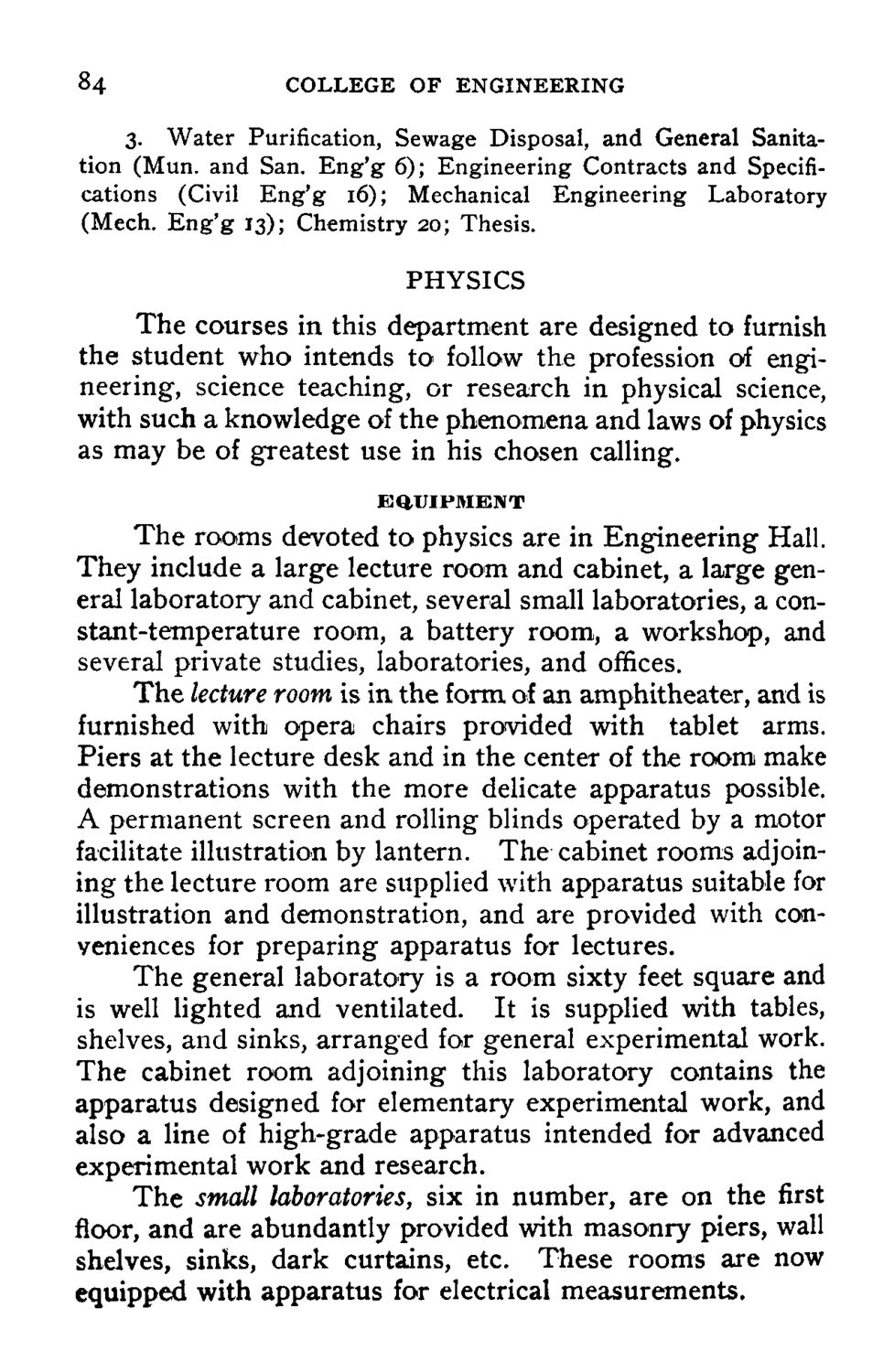| |
| |
Caption: Course Catalog - 1897-1898
This is a reduced-resolution page image for fast online browsing.

EXTRACTED TEXT FROM PAGE:
84 COLLEGE OF ENGINEERING 3. Water Purification, Sewage Disposal, and General Sanitation (Mun. and San. Eng'g 6); Engineering Contracts and Specifications (Civil Eng'g 16); Mechanical Engineering Laboratory (Mech. Eng'g 13); Chemistry 20; Thesis. PHYSICS The courses in this department are designed to furnish the student who intends to follow the profession of engineering, science teaching, or research in physical science, with such a knowledge of the phenomena and laws of physics as may be of greatest use in his chosen calling. EQUIPMENT The rooms devoted to physics are in Engineering Hall. They include a large lecture room and cabinet, a large general laboratory and cabinet, several small laboratories, a constant-temperature room, a battery room, a workshop, and several private studies, laboratories, and offices. The lecture room is in the form of an amphitheater, and is furnished with opera chairs provided with tablet arms. Piers at the lecture desk and in the center of the room make demonstrations with the more delicate apparatus possible. A permanent screen and rolling blinds operated by a motor facilitate illustration by lantern. The cabinet rooms adjoining the lecture room are supplied with apparatus suitable for illustration and demonstration, and are provided with conveniences for preparing apparatus for lectures. The general laboratory is a room sixty feet square and is well lighted and ventilated. It is supplied with tables, shelves, and sinks, arranged for general experimental work. The cabinet room adjoining this laboratory contains the apparatus designed for elementary experimental work, and also a line of high-grade apparatus intended for advanced experimental work and research. The small laboratories, six in number, are on the first floor, and are abundantly provided with masonry piers, wall shelves, sinks, dark curtains, etc. These rooms are now equipped with apparatus for electrical measurements.
| |